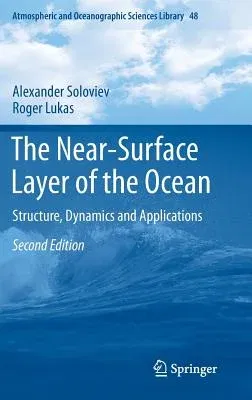Alexander Soloviev
(Author)The Near-Surface Layer of the Ocean: Structure, Dynamics and Applications (2014)Hardcover - 2014, 7 January 2014

Qty
1
Turbo
Ships in 2 - 3 days
In Stock
Free Delivery
Cash on Delivery
15 Days
Free Returns
Secure Checkout

Part of Series
Atmospheric and Oceanographic Sciences Library
Print Length
552 pages
Language
English
Publisher
Springer
Date Published
7 Jan 2014
ISBN-10
9400776209
ISBN-13
9789400776203
Description
Product Details
Authors:
Book Edition:
2014
Book Format:
Hardcover
Country of Origin:
NL
Date Published:
7 January 2014
Dimensions:
23.62 x
16.26 x
3.81 cm
ISBN-10:
9400776209
ISBN-13:
9789400776203
Language:
English
Location:
Dordrecht
Pages:
552
Publisher:
Weight:
975.22 gm